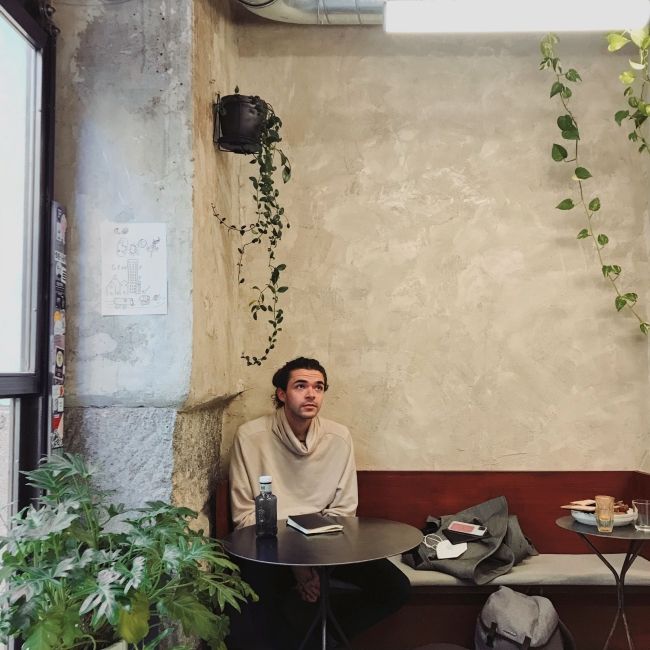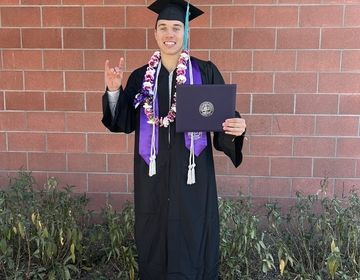Interview: Life as an Auxiliar de Conversación in Castellón
This weekend, I sat down with my friend Colin to ask him about his experience and thoughts about the differences and similarities between teaching as an Auxiliar de Conversación in Madrid, and in Castellón, a region located in the autonomous community of Valencia.
As a bit of a preamble, I actually have never met Colin in person before now. We were introduced to one another through his brother, who was my coworker in 2019, and have been mutuals on instagram ever since. We knew we would both be in Spain this year, but he messaged me on Thursday to let me know he’d be in town to visit his old hangs. He had been a teacher in Madrid in 2017. We were able to meet up for some impromptu adventures, including many visits to his favourite cafés. It was really nice to finally put a face and voice to the person that I’ve known digitally for just about two years. This just goes to show that yes, it is totally worth staying on the grid when you go abroad, and to keep your inbox open in case your friends just so happen to also be in your city.
We met at Acid Cafe, a specialty coffee shop in Cortes, just outside of the Barrio de Las Letras, a few hours before his rideshare would depart. With cortados in hand, the interview commenced.
Alright, so–for the sake of establishing the interview, who are you?
Colin is my name, I’m an Auxiliar de Conversación in Castellón de la Plana, and I’m an expat from Oregon, in the United States.
So, you’re an Auxiliar de Conversación now–but you’ve also lived in Madrid too, yeah? What was that like? Why were you there?
I was not an Auxiliar, but I was working in a similar program teaching in a private preparatory school, and living in a pueblo outside of Madrid called Villaviciosa de Odón.
What programs did you go through?
Last time, I applied through a program that has since been shut down–it no longer exists. So this time, I went directly through NALCAP (North American Language and Culture Assistants Program) and didn’t go through an agency. It was a pretty easy process, I feel like–all the student visa stuff was easier this time around, because it was all remote due to COVID.
Did that experience prepare you for working with the Auxiliar program?
I think it helped me a lot, because I was basically doing the same thing.
But, it was slightly different–of course, it varies from school to school what you’ll be doing in the Auxiliar program. At that school, in Madrid, four years ago, I was doing what I get the impression most Auxiliars are doing, which is pulling students out of the classroom and working one-on-one.
Whereas at the school I’m at now in Castellón, it’s more of a teacher’s assistant role. While still under the Auxiliar umbrella, it involves a lot more of helping in front of the classroom, or stepping in if the teacher has a question about pronunciation or spelling errors, and just sort of being an extra hand in the classroom.
So yeah, I think it definitely prepared me.
As far as the schools are concerned, how would your classrooms compare?
At the private school in Madrid, I was working with first through sixth grade in primary, and now I’m working with infantíl and first through sixth, so there is an age difference. I’m working with the full spectrum of students at the primary school.
Size-wise, it’s about the same. There are about twenty to twenty five students, ish, at both schools.
Vibe-wise, it’s sort of different. There are of course pros and cons about both places. To start with the cons, the kids are much more rowdy at my current school, but the kids at the prep school also had an attitude and were a little entitled. The pros are almost the inverse; the kids at the private school definitely were able to give more attention and were a lot better at focusing, and at my school now, the kids are sweet and lovely, and rarely have attitudes. Of course, it varies from class to class.
Besides the schools, what’s the difference between living in Madrid and Castellón in general? Geographically, the people, the language, housing… how are you finding yourself?
Yeah, so living in Madrid, like I said, I wasn’t living inside the city center but in a pueblo which was about a 45 minute bus into Madrid. That being said, I spent pretty much every day in Madrid. I would take the bus pretty much everyday right after school.
So, in the two places, I sort of have had three different experiences: living in a pueblo, basically living in Madrid as a big city, and now, living somewhere in the middle. Now, I’m living in a place that has around two hundred thousand people, so sort of like a big pueblo, small city–very small city.
In Villaviciosa de Odón, it’s very familiar, like you can’t walk down the street without seeing someone you know. In Castellón, most of the time you’ll run into someone that you’ve seen before, and in Madrid, it’s like, total anonymity. No one recognizes you.
In both places the people are lovely, Spanish culture is warm and friendly no matter where you go, and so in a lot of ways it’s similar.
But then with language, it does vary. In Villaviciosa it’s only Castellano that’s spoken. In Madrid, it’s some hybrid of Castellano, also so much English, a lot of French, a lot of other languages. And in Castellón, it’s less English–some people will speak a little bit of English–but it’s all Castellano, and also Valenciano, which is like, it’s own language, but super similar to Catalán. So, that being said, almost everyone in Castellón speaks Castellano, but there are a few people who only speak Valenciano. You can get by with Castellano… but it’s a bit harder to eavesdrop on people’s conversations, because sometimes it’s in Valenciano.
That’s another difference too, I lived with a host family before, and now I’m living independently with other Auxes. I’m able to practice more Spanish–because in the school, it’s all English, but I used to also speak in English at home as well because the family wanted to practice their English. Now, I speak a mix of Spanish and English.
I guess that’s a pretty thorough comparison. Well, the final questions–do you like the program, do you think you’ll keep doing it?
I hope to, yeah.
Are you going to change regions again? Or do you think you’ll stay where you are?
I would like to live in a bigger city, next time around. So… maybe I’ll switch regions, if that means I get to live in a bigger city. But I also feel like I’ve established myself in Castellón, so I can see myself maybe staying. The south of Spain is really intriguing… the north not so much, but, maybe.
I love Madrid. I would come back to Madrid in a heartbeat.
Thanks, Colin!
If you decide to enroll in the Auxiliares de Conversación program, you have the choice of working in different regions. In the interest of helping potential Auxes understand more about the different parts of Spain, I'm interviewing current and former Auxes to see what they think about their experiences in different places.
CIEE's Teach in Spain program allows guaranteed placement in the Madrid region. If you are interested in teaching in Spain as an Auxiliar de Conversación with CIEE, you can click here to learn more.
What regions would you like me to compare in the future? What kind of city or school environment would you prefer to teach in? Let me know in the comments below, or tag me on instagram and twitter at @nampahceitac.
Related Posts
Self Intro!
A little bit about me :) I am from Sacramento CA, and I love basketball, history, writing, and hiking! I arrived on August 12th and had so fun and memorable experiences already! try to get out of your comfort zone and try new things in all aspects of life!!
Moving to Madrid, Spain from Tennessee
This will be one of a few blog posts that I make when I primarily talk about myself, I promise. Right now, I am less than a week away from... keep reading
48 Hours in Belgium
Because Madrid has a number of bank holidays, us language assistants benefit from days off of school which are in turn, great times to travel and explore different places for... keep reading



